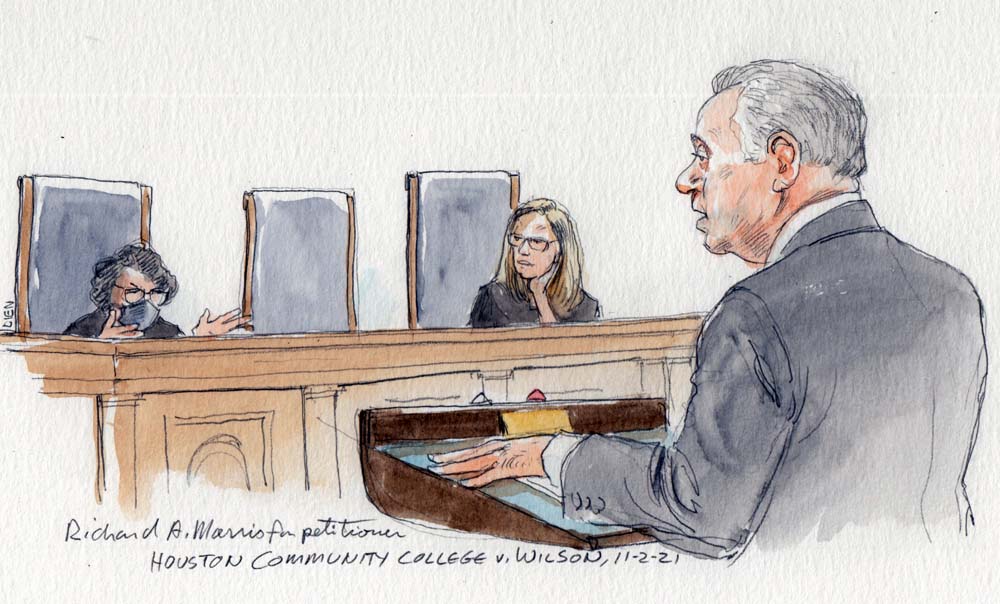SCOTUS: Being Criticized by Censure Does Not Violate First Amendment Rights of Elected Official3/25/2022
Houston Community College System v. WilsoNThe U.S. Supreme Court today unanimously held that an elected body censuring one of its members is not a violation of the First Amendment. In so doing, the Court correctly protected speech and political expression from heavy-handed judicial regulation.
The Court took up this case because a split panel of the U.S. Court of Appeals for the Fifth Circuit oddly concluded that a member of an elected board censured by his colleagues has a viable First Amendment claim. David Wilson, one of nine trustees of the board of the Houston Community College (HCC) System, was publicly censured after what the Court described as years of escalating hostility that included lawsuits, a private investigator, robocalls and accusations by Wilson of ethical violations. The HCC had enough and censured Wilson via a resolution calling his conduct “not only inappropriate, but reprehensible,” and imposed penalties rendering him ineligible for officer positions on the board and pulling his expense account. While the Fifth Circuit ultimately concluded that the penalties were not a problem, it was the criticism it bizarrely thought went too far and encroached upon Wilson’s First Amendment rights. Wilson had tried to make a distinction between a mere reprimand, which does not impair speech, with a disciplinary censure, which he claimed did materially impair his freedom of speech. Justice Neil Gorsuch, writing for a unanimous opinion, found this was a distinction the justices “find hard to see.” Justice Gorsuch noted that since colonial times, assemblies and elected bodies have been free to censure their members. In 1833, Justice Joseph Story observed that even the “humblest assembly” in the United States enjoyed the power to prescribe rules for its own proceedings. Justice Gorsuch wrote: “Elected representatives are expected to shoulder a degree of criticism about their public service from their constituents and their peers – and to continue exercising their free speech rights when the criticism comes.” In other words, elected officials can’t claim to be free-speech snowflakes who can dish it out but not take it. As Justice Gorsuch aptly pointed out, the act of censuring David Wilson was, itself, speech. Justice Gorsuch noted that this is a narrow ruling, leaving room for First Amendment considerations in other contexts. “When the government interacts with private individuals as sovereign, employer, educator, or licensor, its threat of censure could raise First Amendment questions. But those questions are not this one.” Had the Court not corrected the Fifth Circuit, there would have been no end of litigation by aggrieved politicians. Judge Edith Jones, who dissented from the Fifth Circuit’s decision, had warned that the panel’s ruling “threatens to destabilize legislative debate, and invites federal courts to adjudicate ‘free speech’ claims for which there are no manageable legal standards.” Now, as before, the best remedy to speech one finds objectionable is more speech, which no doubt David Wilson will provide and, in all likelihood, receive more of in return as well. Comments are closed.
|
Archives
June 2024
Categories
All
|
ABOUT |
ISSUES |
TAKE ACTION |



 RSS Feed
RSS Feed